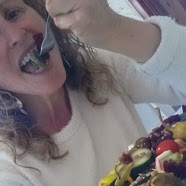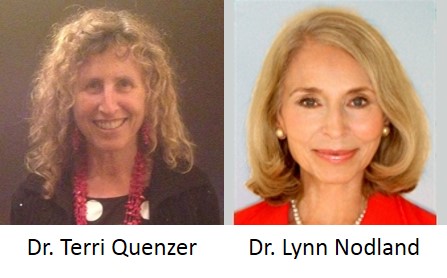
While it's easier to call myself vegan, since most people are familiar with the term, I prefer to call myself plant-based, and when I do, the most typical responses I get are: "I thought you were vegan, what's the difference?" or "Plant-based, what's that?" I'm going to tell you.
Both plant-based and vegan mean no animal-based foods. No meat. No fowl. No fish or sea critters. No dairy (milk, cheese, yogurt, cream, butter, etc.). No eggs. Nothing that had eyes, a Mom, and a Dad. Nothing that came from something that had eyes, a Mom, and a Dad.
Those who are truly vegan choose to be vegan for ethical reasons (animal cruelty), environmental reasons (impact on our planet and sustainability of our resources due to animals raised for consumption), or other reasons. So in addition to not eating any animal-based foods, those who are truly vegan also do not use any animal-based products for any reason, period. So, for example, no leather clothing, accessories, or furniture.
Those who are plant-based typically choose to be plant-based for optimal health, with emphasis on eating only nutrient-dense whole plant-based foods. That means whole fruits & vegetables, whole grains like brown rice and quinoa, beans & legumes, nuts & seeds, and various combinations of those ingredients prepared into amazing creations, both cooked and raw. With the abundance of whole plant-based foods, the combinations and possibilities are virtually endless!
A vegan diet doesn’t necessarily have to consist of whole, plant-based foods. Rather, it can consist of highly processed and refined foods as well as fried foods such as white bread, white rice, sugary foods like cereals (Lucky Charms, Fruit Loops) and granola bars, French fries, doughnuts, etc. In other words, a vegan diet is not necessarily healthy, and can be nutrient-poor. I actually once knew someone who lived on Doritos chips and Diet Coke. Hmmm. Technically, that qualifies as a vegan diet.
As you can see, someone who is plant-based may or may not be vegan. And someone who is vegan may or may not be plant-based.
I chose to become plant-based to optimize my health. After working as a scientist in the pharmaceutical industry, I prefer to use produce and other whole foods as my medicine. I get to prescribe and vary it as much as I want, and it tastes and works much better than pills! Plus, there are no bad side effects!
Although I still have and use some animal-based products that I’ve had since before I became plant-based, I no longer intentionally purchase animal-based products. And while I chose a plant-based lifestyle to optimize my health, I have to admit that I do feel a lot better knowing that my choices are better for animals and the environment.
Both plant-based and vegan mean no animal-based foods. No meat. No fowl. No fish or sea critters. No dairy (milk, cheese, yogurt, cream, butter, etc.). No eggs. Nothing that had eyes, a Mom, and a Dad. Nothing that came from something that had eyes, a Mom, and a Dad.
Those who are truly vegan choose to be vegan for ethical reasons (animal cruelty), environmental reasons (impact on our planet and sustainability of our resources due to animals raised for consumption), or other reasons. So in addition to not eating any animal-based foods, those who are truly vegan also do not use any animal-based products for any reason, period. So, for example, no leather clothing, accessories, or furniture.
Those who are plant-based typically choose to be plant-based for optimal health, with emphasis on eating only nutrient-dense whole plant-based foods. That means whole fruits & vegetables, whole grains like brown rice and quinoa, beans & legumes, nuts & seeds, and various combinations of those ingredients prepared into amazing creations, both cooked and raw. With the abundance of whole plant-based foods, the combinations and possibilities are virtually endless!
A vegan diet doesn’t necessarily have to consist of whole, plant-based foods. Rather, it can consist of highly processed and refined foods as well as fried foods such as white bread, white rice, sugary foods like cereals (Lucky Charms, Fruit Loops) and granola bars, French fries, doughnuts, etc. In other words, a vegan diet is not necessarily healthy, and can be nutrient-poor. I actually once knew someone who lived on Doritos chips and Diet Coke. Hmmm. Technically, that qualifies as a vegan diet.
As you can see, someone who is plant-based may or may not be vegan. And someone who is vegan may or may not be plant-based.
I chose to become plant-based to optimize my health. After working as a scientist in the pharmaceutical industry, I prefer to use produce and other whole foods as my medicine. I get to prescribe and vary it as much as I want, and it tastes and works much better than pills! Plus, there are no bad side effects!
Although I still have and use some animal-based products that I’ve had since before I became plant-based, I no longer intentionally purchase animal-based products. And while I chose a plant-based lifestyle to optimize my health, I have to admit that I do feel a lot better knowing that my choices are better for animals and the environment.



 RSS Feed
RSS Feed